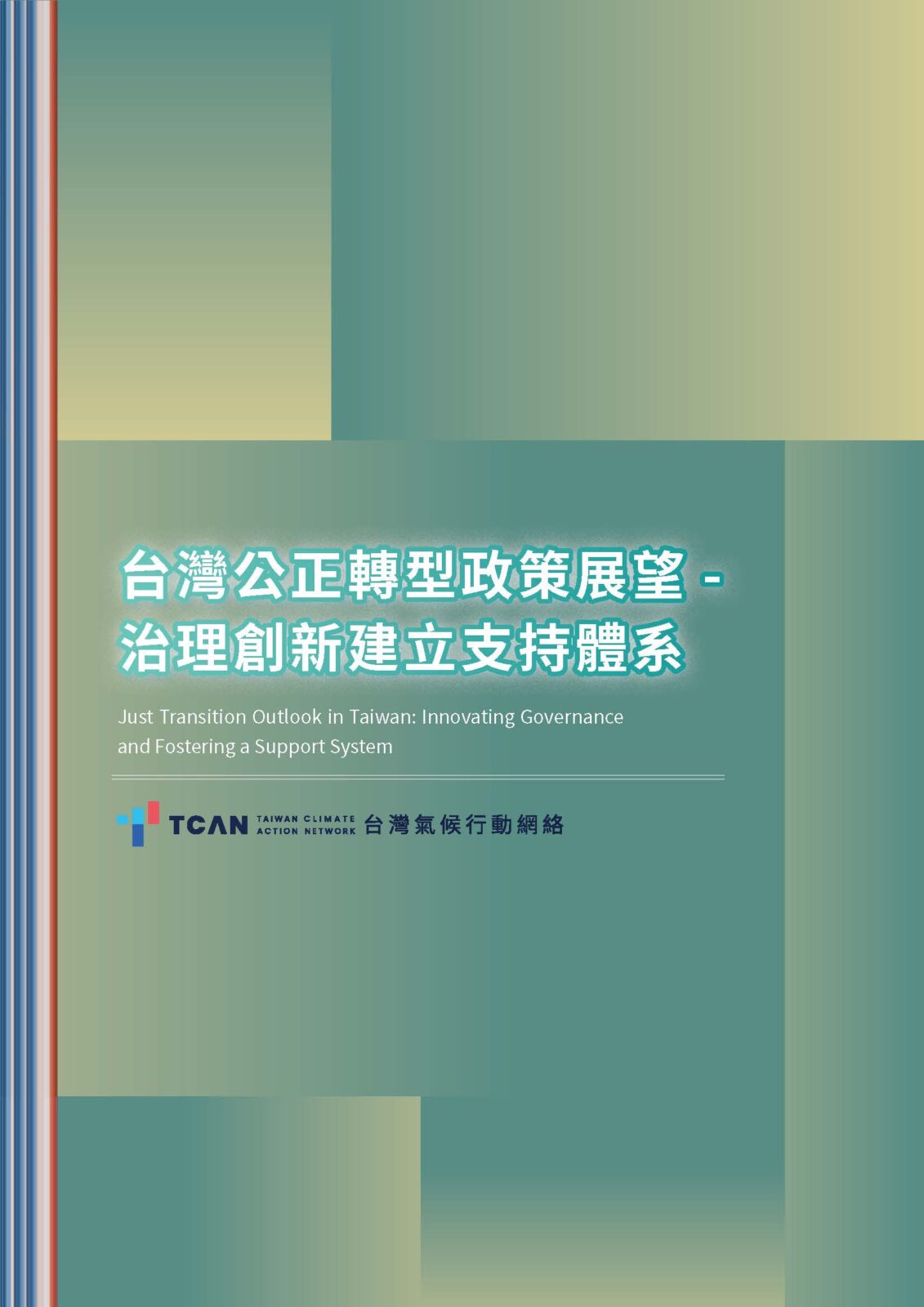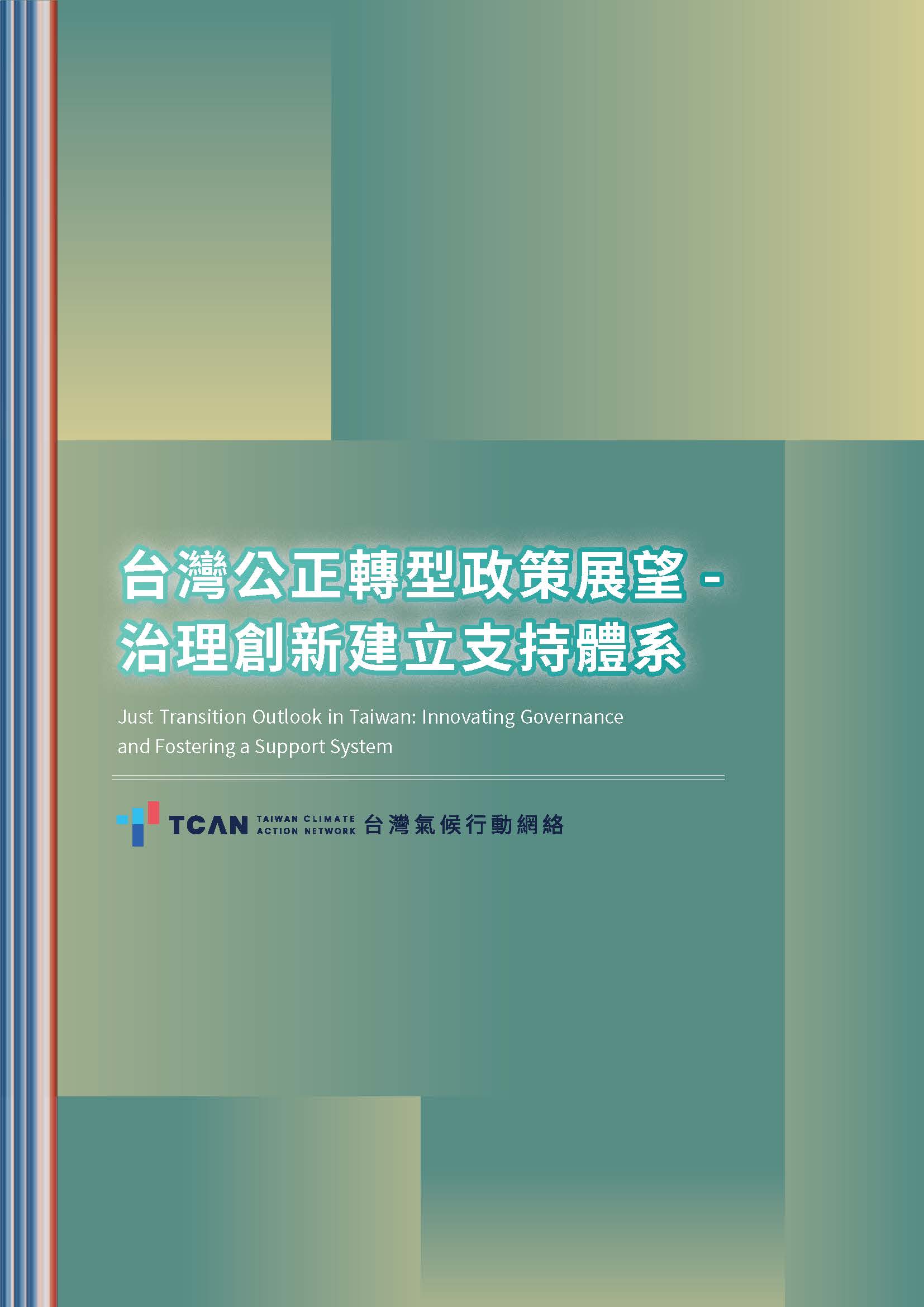The past three years have seen a proliferation of “just transition” (JT) in Taiwan’s climate policy-making circles. The government’s 12 Key Strategies in Transformation toward Net-Zero Emissions, announced in December 2022, and the updated Climate Change Response Act Parliament passed in January 2023 both featured JT-specific provisions and action plans. Such is the result of years of civil society advocacy and engagement, making Taiwan one of the leading countries worldwide that have defined JT as a guiding principle in their framework laws on climate change.
With the policy and legislative frameworks for JT more or less in place, the task now lies in ensuring their robust implementation: addressing and mitigating any negative impacts the transition to a net-zero society may bring, directing funding and resources to workers and communities whose livelihoods the transition hits, and making sure that the technologies and economic activities we transition into do not exacerbate existing inequalities nor constitute new sources of adverse health and safety effects.
As President Lai Ching-te’s administration takes office, this policy report examines the current state of Taiwan’s JT planning and governance structure, identifies governance and knowledge gaps, and proposes a number of recommendations on research and policy developments moving forward, particularly regarding “governance innovation”, “industrial transformation”, and a “JT support system”:
Innovating Governance
- The Executive Yuan (EY) should develop Just Transition guidelines for Medium- and Long-term Individual Projects of EY-subordinate agencies. This will guide government agencies in considering stakeholder input and potential transition risks during the planning phase of their projects and serve as the basis for EY review and approval, as well as subsequent implementation.
- Establish a stakeholder identification methodology and allocate resources to assist in stakeholder capacity-building.
- In addition to the identified stakeholders, the government’s JT “social dialogue” meetings should include local government representations from impacted regions, academic research institutions, and representatives from vocational education. Organise one or two large-scale conferences to consolidate the various recommendations from these meetings and provide an overview of future planning.
- The inaugural Just Transition Committee should work to clarify (a) the respective roles and responsibilities of its government and non-government commissioners, (b) the rationale and positioning of its National Just Transition Vision Report, and (c) the interaction and division of labour between the Committee, the government’s interministerial task force, and external public consultation meetings.
Making Industrial Transitions Just
- The competent authorities for the 12 Key Strategies, with the Ministry of Labour and local governments, should analyse the impacts of transition measures on existing employment patterns within the value chains of various industries under their oversight. Through multi-stakeholder social dialogue mechanisms, they should also consider the impacts on industrial clusters and vulnerable groups (including informal and migrant workers) and identify current regulatory and governance gaps.
- Amend the Labour Union Act, the Collective Agreement Act, and other union-related laws and regulations to increase union coverage in Taiwan and empower workers to play more significant roles in shaping Taiwan’s JT policies.
- Following the recommendations of the ILO’s Social Protection and Just Transition Policy Brief, assess Taiwan’s social welfare system’s role in addressing the impacts of industrial transitions. Identify areas where the system needs improvement and develop measures to enhance worker protection and empowerment beyond skills training.
- Include the Ministry of Health and Welfare in the inter-ministerial task force to allow for the analysis of and social dialogues on potential public health and health-related risks and benefits of transition measures, especially concerning emergent technologies such as hydrogen and carbon capture, utilisation, and storage (CCUS).
Fostering a JT-Support System
- The Ministry of Finance should comprehensively analyse Taiwan’s current tax regime regarding its ability to capture environmental externalities. It should also develop a long-term carbon pricing strategy that would allow the upcoming carbon levy to transition to a carbon tax, providing clear price signals and broadening the allocation of revenues to deliver additional dividends and enhance overall social welfare.
- The Financial Supervisory Commission should work to incorporate socioeconomic metrics and considerations into its existing Key Strategy for Green Finance and the upcoming Green Finance Standards and Guideline for Sustainable Economic Activities. This will help prevent allocating funding and resources to projects and initiatives exacerbating socioeconomic inequality.
- The Financial Supervisory Commission and Taiwan Stock Exchange should strengthen the Operating Procedures for Preparing and Submitting Sustainability Reports for Listed Companies and other relevant laws and regulations to require listed companies in the oil and gas, chemicals, steel, and cement industries above a specific capital to disclose their JT strategies in their sustainability reports.
These recommendations are by no means exhaustive or definitive. Instead, they invite more stakeholders, government bodies, civil society organisations, scholars, and citizens to engage in JT-related discourses and processes of decision-making. Only with open, broad-based, and inclusive communication will we be able to align JT policy measures with the specific context and needs of Taiwanese communities experiencing the impacts of the net-zero transition and prevent ourselves from repeating the patterns and failures of past “unjust” transitions.
Download the full report (in Mandarin Chinese) here.





